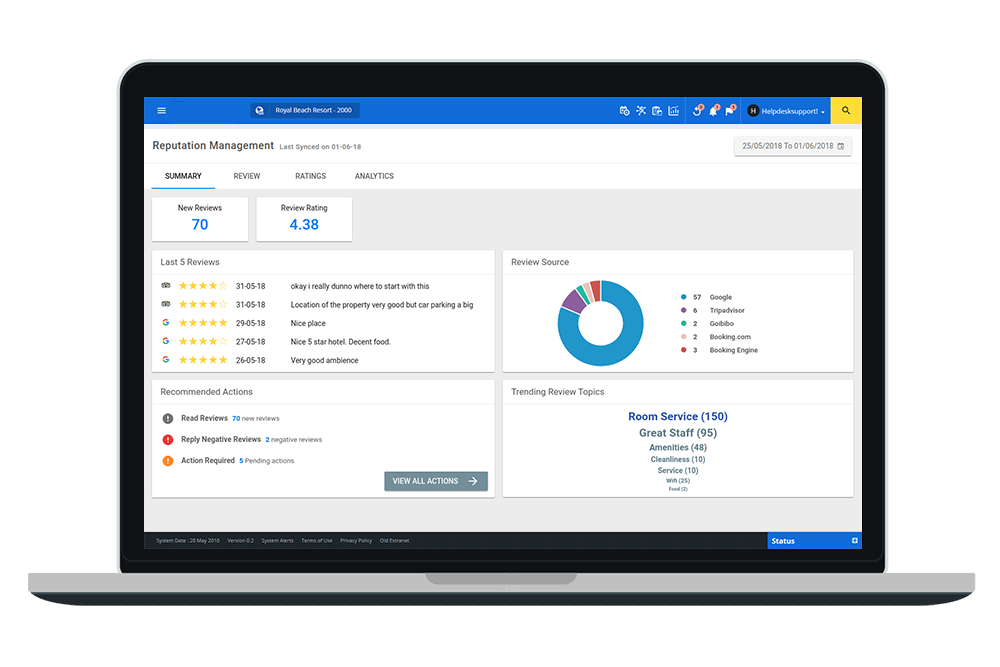Online Reputation Management Software is defined as software which monitors, influences, grows, and manages what is being said online about a business or person. It is designed to improve customer service and opinion by identifying negative reviews and aiding in addressing them. The software is also able to interpret and/or analyze a brand’s online reputation, generating reports that can be used to promote the brand(s) in advertising and email campaigns.
Need for reputation management software has risen in response to statistics, such as these coming from FinancesOnline and BrandYourself, showing that 42% of people research businesses online prior to doing business with them and out of that 45% of people change their mind about doing business with that company based on that search. Vendasta reports that 88% of people read reviews before purchasing anything and only 14% of people will still purchase from a brand with one to two-star reviews. Search Engine Land states that 72% of people trust online line reviews as much as real people recommendations. This makes what people have to say about a brand a vital commodity.
Reputation management software becomes a key element in a companies digital marketing strategy. Such software is automated. So one must consider features, the more features the higher price you or your company will pay. Some of the prime features to consider are the ease of integration with your company’s current online platform(s), tool flexibility, real-time notifications, clear easy to understand reports, analysis, and summaries, single platform or window operation, is it practical, does it create a secure online environment preventing confidential information leakage, how will it affect a collaborative workspace, and just how specific are the search and monitoring functions.
Search and monitoring functions often include reviews and responses to reviews, social media, and networking mentions, benchmarking, reviews of employee’s social media activity, online listings, and reports on conversations appearing on social media. This has already affected SEO (Search Engine Optimization) trends as reviews and articles are getting pushed below brand websites so that they are no longer the first thing a person sees. Some search and monitoring functions may even be seen as invasive or downright offensive, specifically as they spy on employees and their online presence outside of work.
Ideally, the benefits include a greater interest in providing quality customer service, resolving customer complaints, gaining positive word of mouth, earning customer trust, increasing transparency, addressing negative reviews and comments, promoting endorsements, identifying business opportunities, and growing a digital presence. By capturing negative customer reviews and experiences, the notification feature of these software programs assists you or your brand in addressing the problem, turning a negative into a positive. However, the software can also hinder conversations with customers by preventing personalization. For large brands, more generic responses may not be a problem, but for the small business, it can hurt a growing reputation just as badly as an unresolved negative review or experience.
Additionally, there is the issue of technological expertise. Before you pay for any online reputation management software see if they offer a free trial period. Among the multitude of software providers out there Rize, Qualtrics, Hootsuite, SproutSocial, and ShopperApproved, all offer a free trial period. Vendasta, Yotpro, Percolate, and Birdeye, all offer free demonstrations. Demand Force offers a free consultation, and BrandYourself offers a free scan and report. For people who are not technologically savvy some of these software programs may be too difficult to navigate or comprehend, that is why it is so important to utilize free options to see if that software will work for you and/or your brand.




